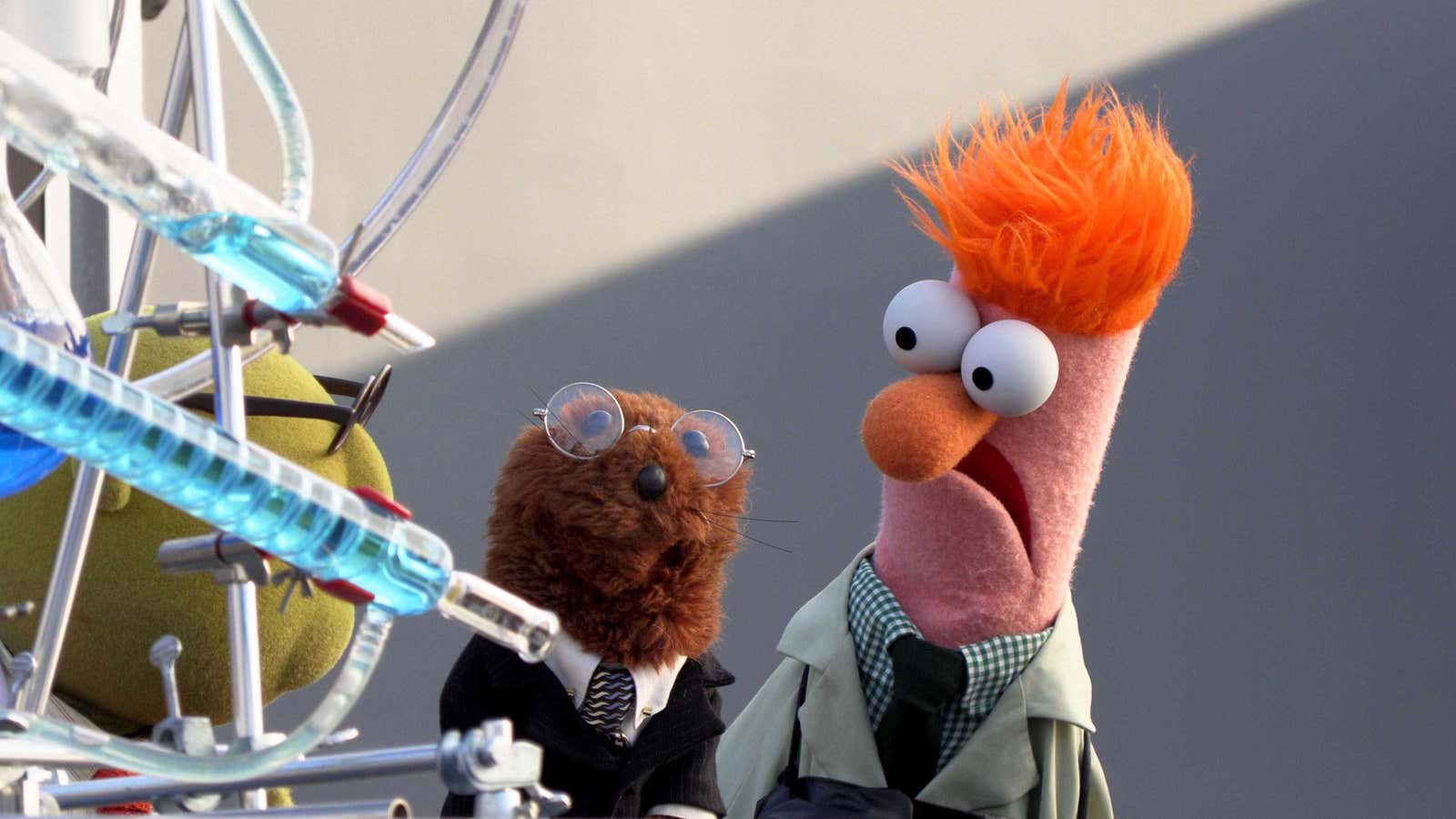The Muppets have not been canceled. They have just been put in context.
Disney added all five seasons of The Muppet Show to its streaming service, Disney+, on Feb 19. The show, which first aired in 1976 and featured characters like Kermit the Frog interacting with celebrity guests, did, on occasion, include some content a modern audience might find questionable. In one episode, for example, Johnny Cash performed a song in front of a Confederate flag. And so, before select episodes, Disney inserted a brief disclaimer warning viewers of that content:
This program includes negative depictions and/or mistreatment of people or cultures. These stereotypes were wrong then and are wrong now. Rather than remove this content, we want to acknowledge its harmful impact, learn from it and spark conversation to create a more inclusive future together.
Disney is committed to creating stories with inspirational and aspirational themes that reflect the rich diversity of the human experience around the globe.
This move, naturally, set off the internet outrage machine. Fox News, sons of former US presidents, and popular conservative media figures cried cancel culture, accusing Disney and others of trying to erase the absurdist puppet characters.
In fact, Disney is not censoring The Muppet Show. The only edits made to any of the episodes were because Disney failed to secure some music rights, Entertainment Weekly reported. No Muppets were removed or altered—they are being presented exactly as they were several decades ago, blemishes and all.
Now that the Confederate flag is widely understood to be associated with white supremacy, it would be strange for Disney to not address its appearance in a Muppets sketch. Having no disclaimer prior to that episode would be endorsement by omission. You don’t need to cancel the entirety of The Muppet Show to call attention to that, or to anything else civil society has come to reject in the decades since the show first aired.
A disclaimer condemning content on Disney+ is not very different from a nudity or gore warning before an HBO series. It merely informs viewers about what they’re about to watch. It allows them to make their own decisions. It lets children—who are undoubtedly using the family-friendly streaming service—know that perhaps they shouldn’t hold a concert in front of a racist symbol.
The outrage is selective, too. Disney has placed the same disclaimer before several other shows and films, including Peter Pan (for blatant stereotypes of Native Americans) and Swiss Family Robinson (for the use of brown face and yellow face). In no instance was the content removed entirely. (Disney has, however, taken the 1946 film Song of the South of all its platforms for racist stereotypes of black Americans.) Fox News’ criticism is especially disingenuous, considering hosts on the network have for many years complained about the Muppets, labeling the characters as anti-capitalist liberal propaganda.
Given Disney’s deep library of older shows and films, it must reconcile its questionable content more than most. But other companies have done the same. WarnerMedia’s HBO Max added disclaimers to some films, like Gone with the Wind and Blazing Saddles. The films themselves were unchanged.
Contextualizing questionable or otherwise hurtful material—but not suppressing it—is by definition not cancel culture. As the owners of the Muppets’ streaming rights, Disney can present them in whatever way it wants. Everyone can still watch Gonzo and Miss Piggy to their hearts’ content.
